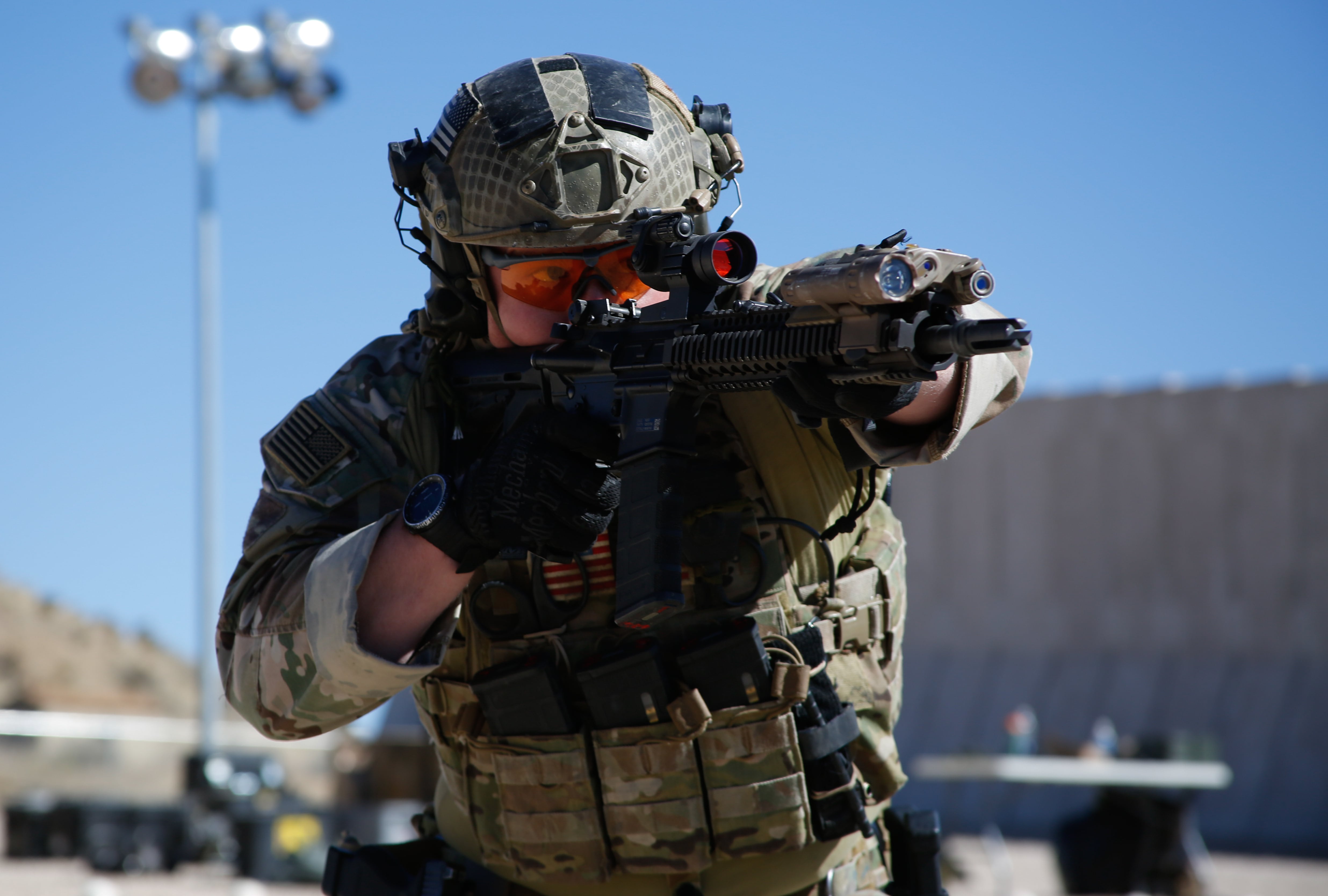The Army has a tough enough time trying to attract the less than 1 percent of Americans who are willing and able to join the military.
But once they’re in, Army special operations is looking at about 18 percent of those who are qualified to join more high-intensity career fields like Special Forces, special operations aviation, civil affairs and psychological operations.
Thus is the challenge of the Special Operations Recruiting Battalion, which is currently looking for more than 2,000 soldiers to fill empty billets in these elite jobs.
“We see those struggles as well, on our end,” said Maj. Adam Paxton, operations officer for the Special Operations Recruiting Battalion. “Obviously, we can only recruit from what the Army recruits.”
While you may hear Army Special Operations Command and only think of Green Berets and Rangers, the organization also oversees a number of other career fields.
“A lot of people, when they hear ‘special operations,’ they immediately either go to the Ranger regiment or Special Forces, and all they think about is guys blowing stuff up and hunting people down — and we do a lot more,” Paxton, a Special Forces officer, said.
Currently, the SORB is looking for 469 soldiers each to join the civil affairs and psychological operations communities, as well as MH-60 Black Hawk and MH-47 Chinook helicopter repairers for the 160th Special Operations Aviation Regiment.
And, not to be outdone, 1,400 Green Berets.
“Less than one percent of Americans actually can — and want — to serve in the military,” SORB recruiter Sgt. 1st Class Michael Harter told Army Times. “Then you’re also asking 18 percent of that one percent to do something a little bit more tough, that has a little bit more ambiguity.”
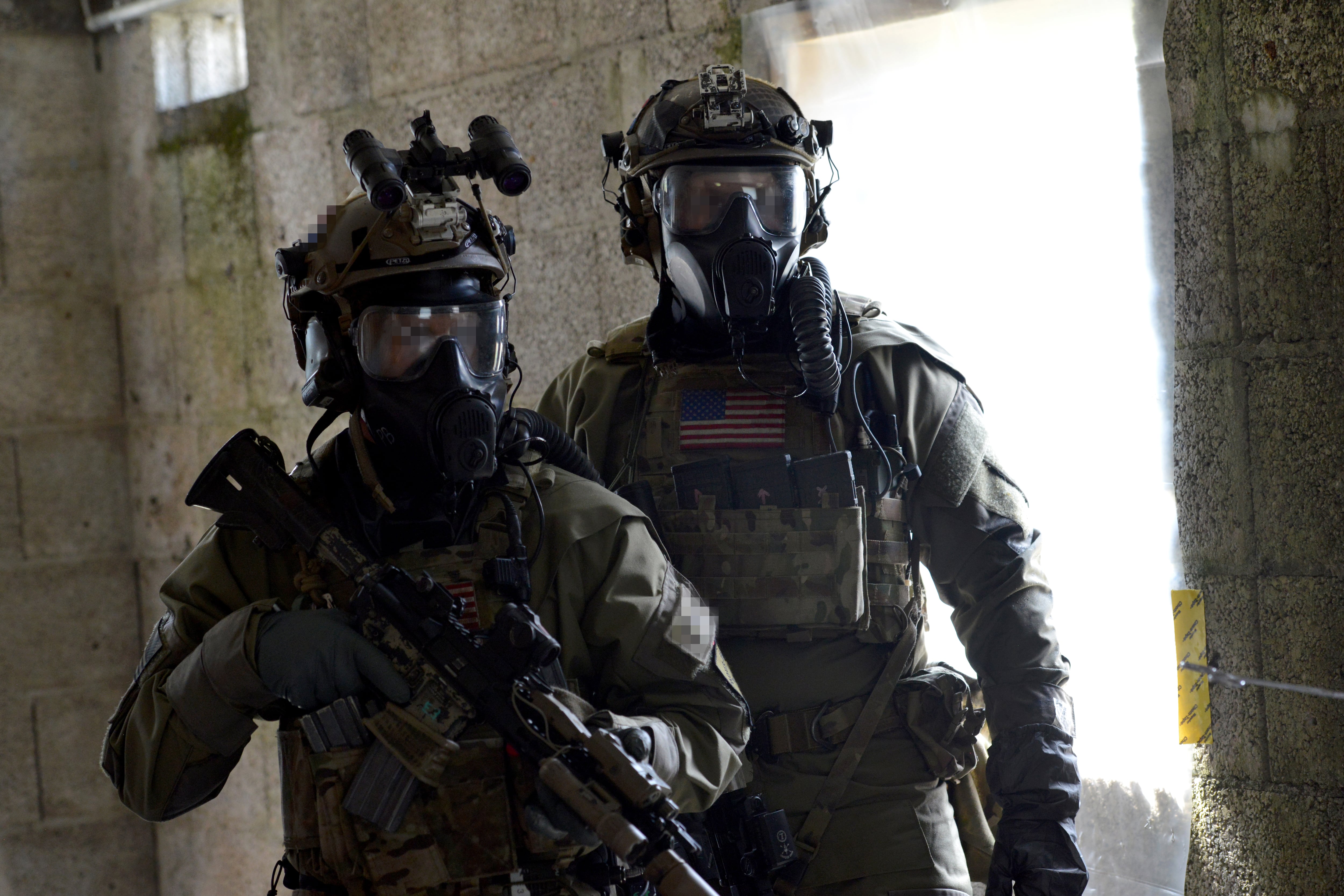
Despite the pop culture mystique of special operations, it’s not as easy to get people in the door as you might think.
“Oh, it’s definitely a challenge,” Paxton said. “The entire USASOC enterprise is looking at it and trying to find ways — as is the entire Army.”
Not just door-kickers
Conventional wisdom might suggest that soldiers would be beating down a recruiter’s door for the chance to serve with Special Forces. Not so, according to Paxton.
“Our sergeant major was in a brief with a bunch of other sergeants major from throughout the Army, and a comment was made like, ‘I’m sure people are lining up out the door to become Special Forces.’ And we’re like, ‘nope, actually they aren’t,’ ” Paxton said.
Perhaps it’s the higher standards or the notoriously high operations tempo, but the SORB is generally not accustomed to filling every spot.
“For some people, it’s just the fear of getting out of the comfort zone,” Paxton said. “Not necessarily that it’s hard and they’re afraid of it, but ‘I’m good where I’m at, I’m successful where I’m at right now. I don’t want to risk that.’ ”
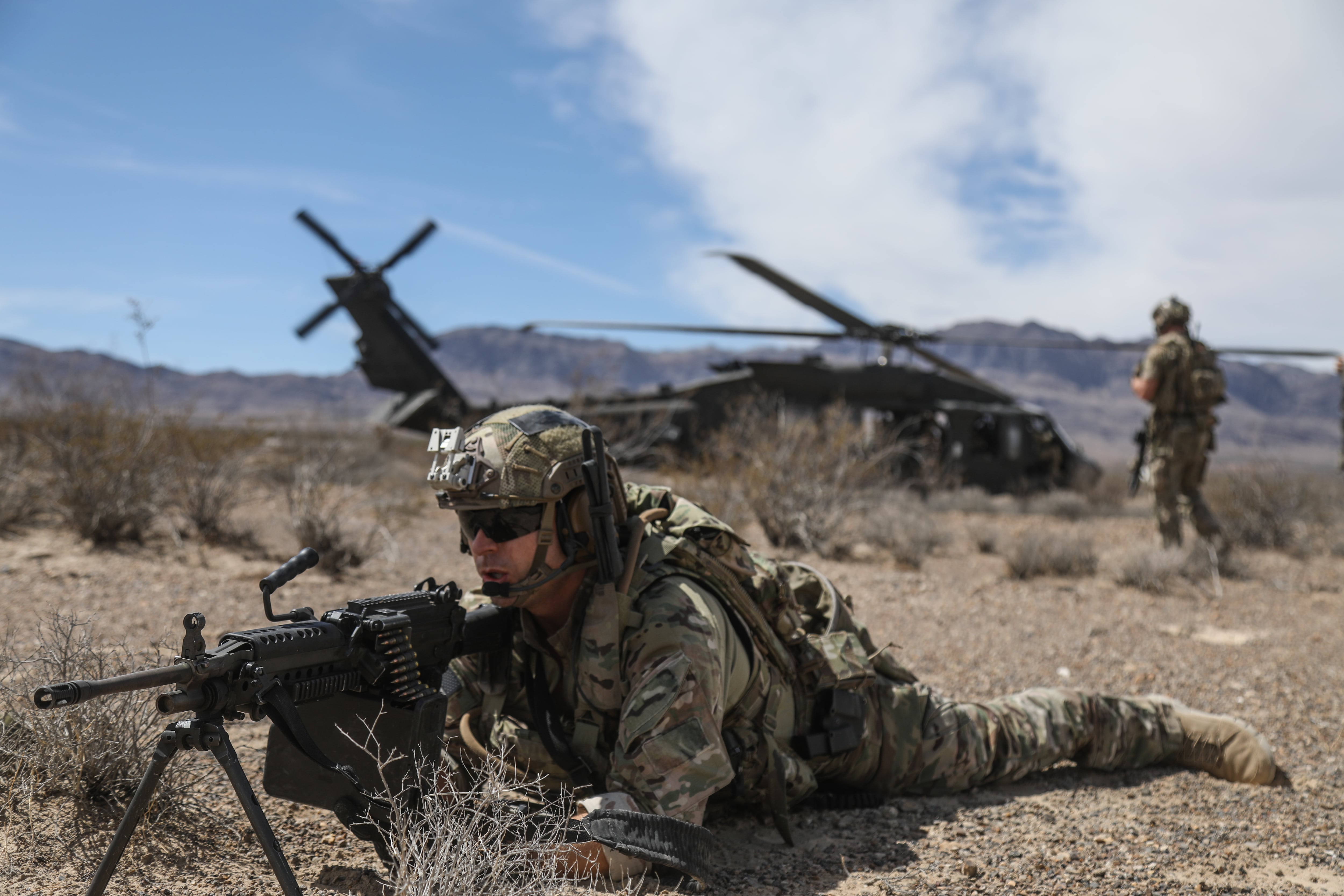
But if you work in aviation, the 160th is an opportunity to up your game. If the Army’s mission to build goodwill toward the U.S. and discourage participation in violent extremist groups interests you, psychological operations could be for you. If you’d like to cooperate with local governments on projects that improve quality of life for people staring down the barrel of those groups, civil affairs could be a good fit.
“Civil affairs and psychological operations isn’t kinetic in the same way,’ Paxton said. “That offers that spectrum to those that still want to be out in the front of the fight we’re in these days, more than just going to training every week. ‘Hey, I want to deploy and go to something and do my job,’ but they’re not necessarily interested in the lethal part of it.”
Want to deploy?
Speaking of which, the SORB is particularly looking for those soldiers who have ever lamented that they’re doing busy work and going to training program after training program, but not getting to do their job downrange.
“So, when you have these soldiers who are in whichever unit, they’re like, ‘I went to the field and then I came back. I went to Fort Irwin and then came back. I went to [the Joint Readiness Training Center] and I came back,’ ” Paxton said. “Meanwhile, special operations soldiers, in maybe that same two or three years, have deployed two or three times. Not just combat zones like Iraq or Afghanistan, but across the globe.”
Recent research shows that despite the dangers, many soldiers do want to deploy. That was a conclusion of a RAND Corp. study about new soldiers released earlier this year.
RELATED
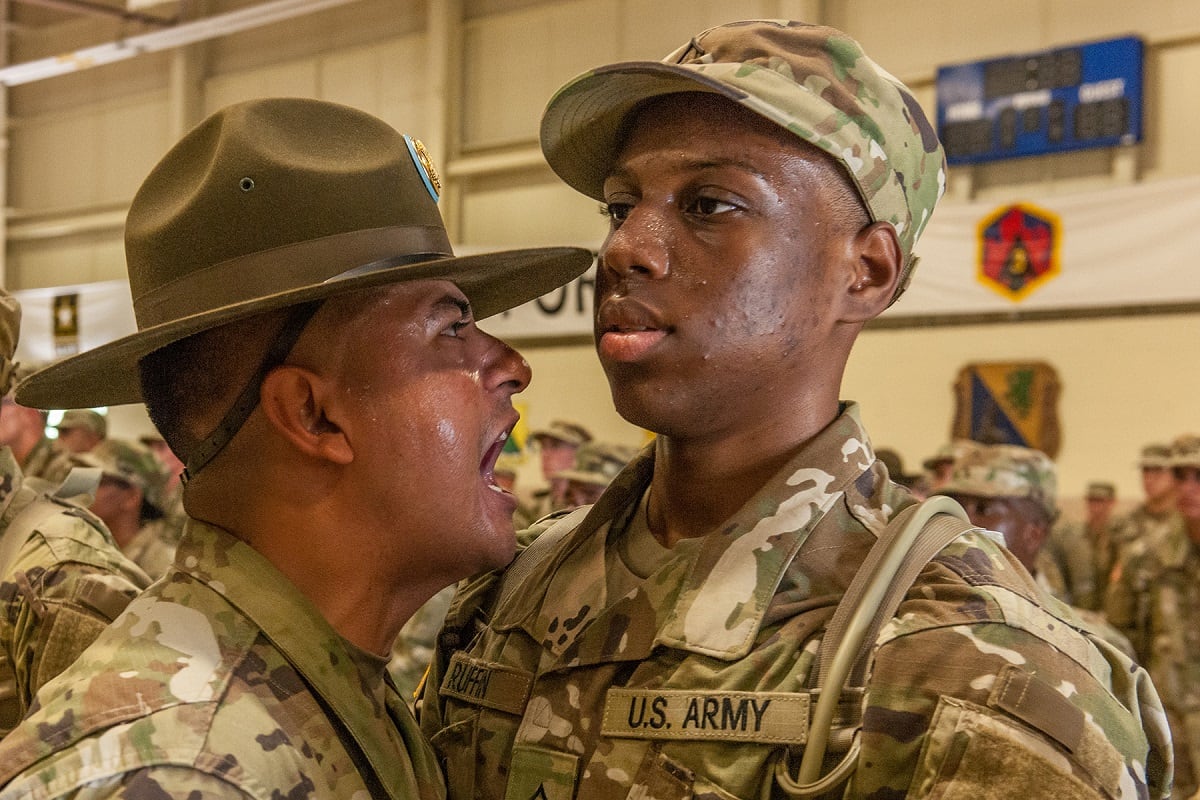
“Some soldiers complained about not being able to perform the jobs they trained for during Basic Combat Training (BCT) and Advanced Individual Training (AIT),” the study found. “Others expressed frustration with boredom, the lack of time spent training in the field, and performing tasks that did not relate to their occupations; a few soldiers wanted more deployment opportunities.”
There is no shortage of those in special operations. While conventional units are mostly deploying to the Middle East in train-advise-assist operations, USASOC units are working behind the scenes in South America, Africa, Asia and beyond.
“I didn’t join the military sit around and hang out at home,” Paxton said. “Do your job, whatever that job may be, and deploy and actually do that.”
Benefits and drawbacks
But as Paxton and Harter pointed out, there are some preconceptions about special operations that keep people from making the jump. Yes, deployments are frequent, but allowances can be made.
“Most … special operations units, if there’s something like a family matter that has to be addressed — from what I know — they will do everything they can to get you back to your family to handle that thing,” Harter said.
There’s much more flexibility when you’re not deploying in brigade- or battalion-sized elements.
Outside of combat rotations, special operations soldiers are often deploying to support foreign military training or exercises, and in that case, leadership can put together teams with more discretion.
“If one of the members of the team has family issues going on, it’s not out of the ordinary to say, ‘Okay, we’re going to pick another guy from a team of that same MOS for this deployment,’ ” Paxton said. “We’ll assign you to the company or the battalion until your family situation gets straight, and then we’ll put you back on our team.”
Units can’t afford to lose the specialized experience and training, he said, because it can’t be back-filled with new soldiers.
“There is a tremendous amount of awareness and care that comes from SOF into that family aspect, because we know, if a family is like, ‘We’re done,’ then that soldier is like, ‘I’m done,’ ” Paxton said.
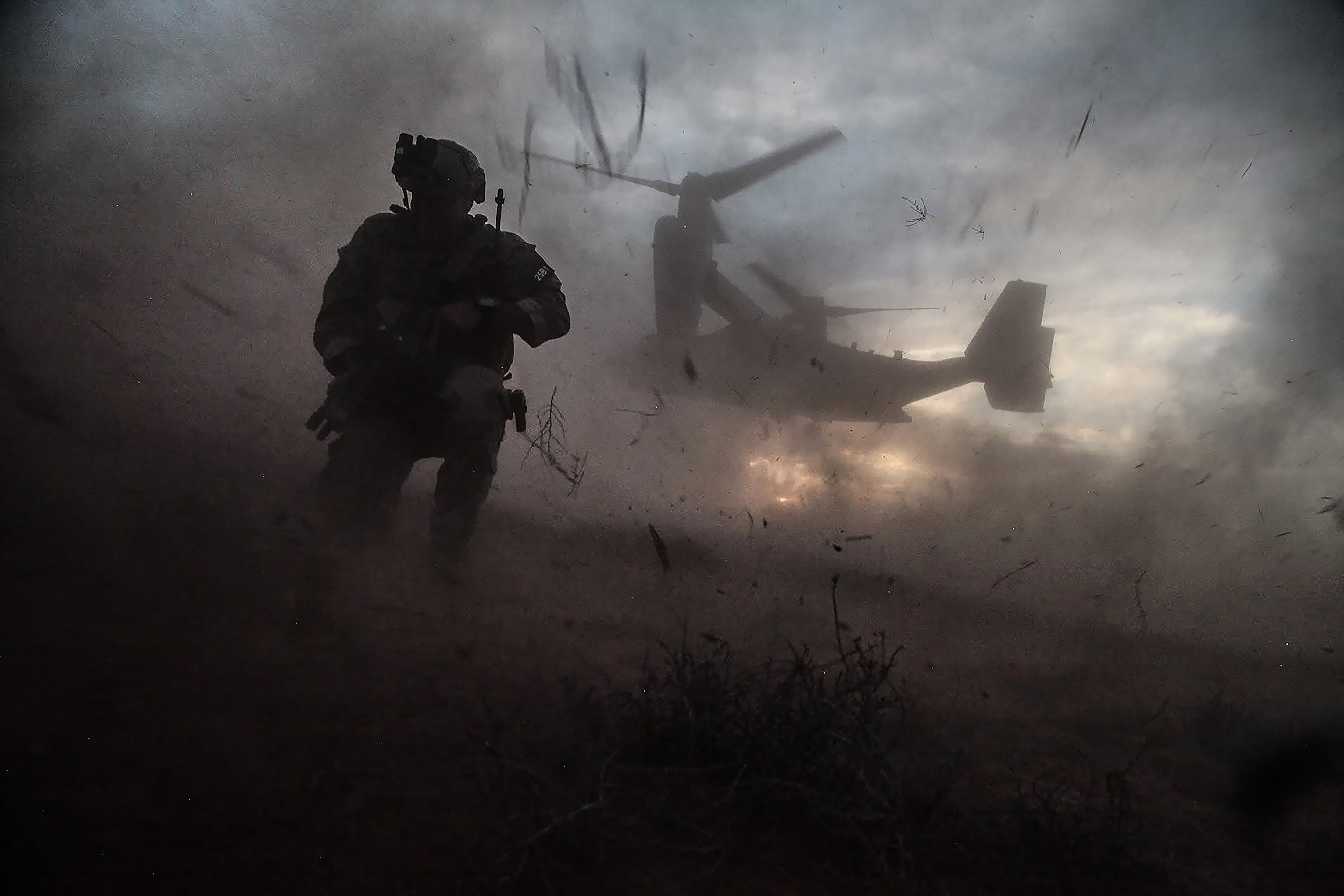
Despite that op tempo, there are a handful of things one might find in the SOF community that aren’t available in other parts of the Army.
For one, there’s advanced schooling, and special pays that go along with it. Demolition training, dive training, sniper school, airborne qualification, even languages — up to several hundred bucks extra a month depending on how hard the language is and how well you speak it.
“If you can speak Mandarin Chinese and you’re a [military police officer] somewhere, the MP corps isn’t paying you to speak Mandarin,” Harter said.
There are also opportunities for promotions, particularly in Special Forces.
“From SF, if, for example, you have an E-4 who goes to selection, and he gets selected and goes to the [Special Forces qualification] course, upon his graduation if he isn’t already, he’ll be promoted to E-5,” Paxton said. “And then it’s roughly six or seven months or so before he’s normally promoted again to E-6.”
And beyond the tangibles, the environment agrees with a lot of people, he said.
“You’re working with motivated people, that high-skill team of professionals,” Paxton said.
Beyond being a little bit older, possibly having gone to college or worked elsewhere before joining the Army, there is a different atmosphere in SOF.
“Everybody’s volunteered to be there, at least twice,” Paxton said. “Signing up, going to airborne school. It’s not like somebody’s just being placed there and held against their will, like ‘Man, I hate the Army.’ ”
There is also a range of bonuses available across USASOC. Special Forces soldiers can make between $4,400 and $72,000 to re-enlist, depending on rank, length of contract and special skills.
Some helicopter maintenance and crew members in the 160th SOAR can make between $2,600 and $36,800. For PSYOP, it’s between $6,300 and $72,000, while civil affairs offers $4,400 to $46,000.
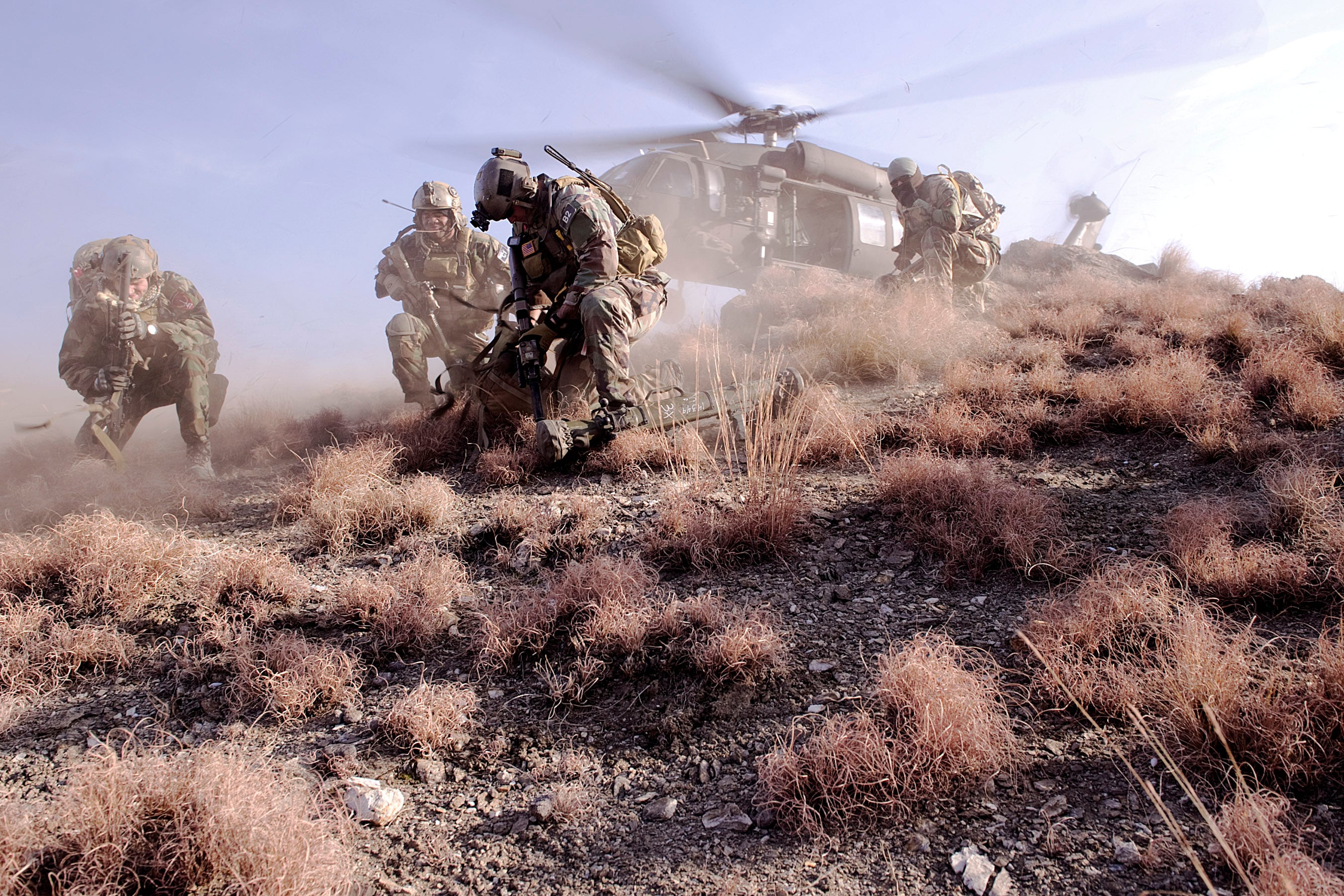
What it takes
If all of that sounds appealing, the next step is to reach out to the SORB. Or maybe, they’ve already reached out to you.
“We do high-visibility events to try to attract, or get the ARSOF name out,” said Harter, particularly on the battalion’s Fort Bragg, North Carolina, home base.
For those events, they’ll select a mix of representatives from the community to answer any questions.
Though Special Forces has been open to women since early 2016, no women have completed the qualification course.
But if any have questions about joining USASOC, recruiters will try to bring a female officer or NCO from the PSYOP or civil affairs community.
They also work with Army Recruiting Command, to make sure the conventional Army recruiting machine is making sure to bring in the high-quality recruits USASOC will need.
“What we do … is we’ll work with USAREC stations across the nation, to kind of give them that training to understand the programs, and then they enlist in that actual MOS from the streets,” Harter said. “So, the more knowledge that we can push out to USAREC or the sub stations below them, the better off they are at identifying the needs for USASOC.”
SORB recruiters will also sort through Army databases, looking for soldiers who are already meeting their standards.
“For the more specific soldiers that we’re trying to attract and get in front of, we can go directly either to retention or their chain of command,” Harter said. “We have a system to identify high-qualified candidates, with best chances at making it through selection.”
Don’t know if you’re qualified? Here are the minimums:
Special Forces
- More than 110 on the general technical and combat portions of the Armed Services Vocational Aptitude Battery
- At least 49 push-ups and 59 sit-ups in two minutes each, six pullups and at least 15:12 on a two-mile run
PSYOP and civil affairs
- More than 107 GT on the ASVAB
- Minimum 240 on the Army Physical Fitness Test
160th SOAR
- More than 100 GT on the ASVAB.
- Must submit last three APFT test scores
“Most SOF elements want a 240 PT test,” Harter said.
And while physical prowess is a good indicator of success in special ops, Paxton said, the SORB is not just looking for combat arms soldiers to make the switch. An infantry background might prime a soldier for the culture of road marching and high physical activity, but the standards are age and gender neutral.
“With that system, that tells us about our highly qualified individuals, that have a good chance of getting through ... if they’re on that paper and they’re qualified, we are going to talk to them,” he said.
Meghann Myers is the Pentagon bureau chief at Military Times. She covers operations, policy, personnel, leadership and other issues affecting service members.
